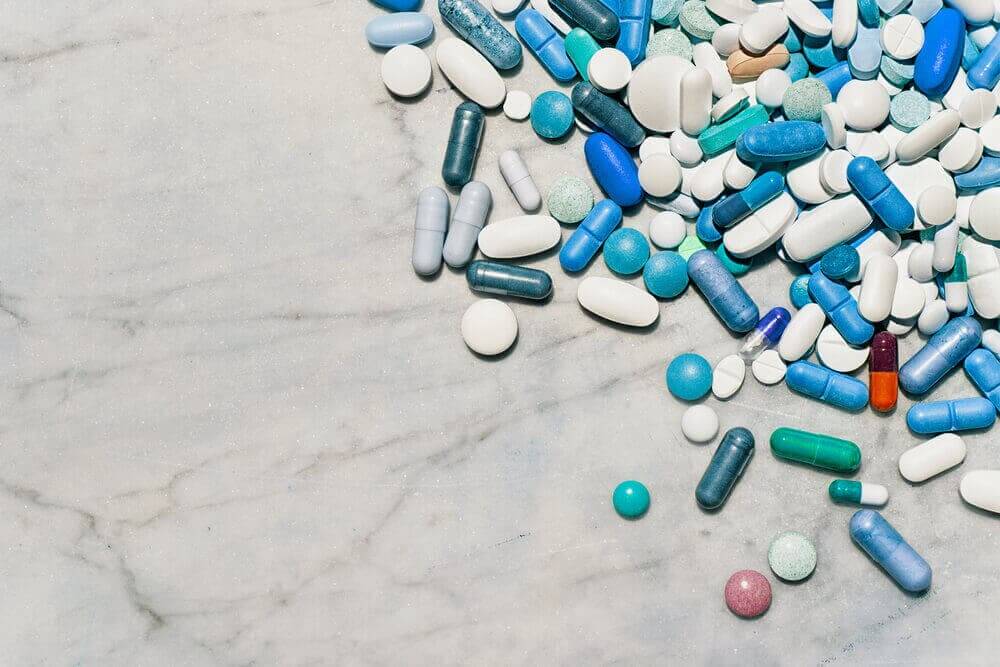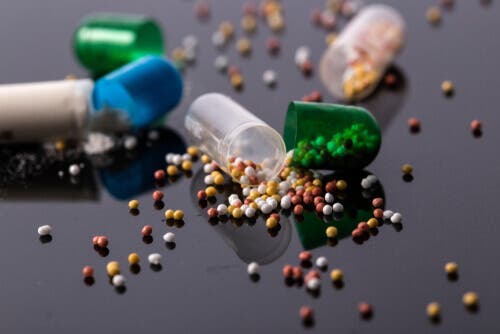6 Risks of Crushing Medication

Crushing medication is a common practice to make taking pills easier. However, it alters the integrity of the drug and, therefore, its effectiveness. Ideally, you should take medications without changing them.
Most drugs come in the form of tablets, pills, or capsules. For this reason, if it’s too hard to swallow them, some people break or crush them.
Why crushing medication isn’t good
Many people prefer crushing medication to make it easier to take. However, as stated in a publication in Nursing Magazine, there are some medications that are made to release their active ingredients for a certain period of time.
Therefore, it can be harmful to crush them and then consume them. Are there more reasons to avoid crushing medication? Keep reading to learn more.
1. Loss of drug stability
Difficulty swallowing is a common problem for the elderly. Also, it’s common in people with behavioral disorders.
In these cases, they crush the pills and open the capsules. Then, this leads to significant changes in the stability of the active ingredients.
It also leads to a possible loss in the effectiveness of the medicine. Also, it probably won’t taste very good!

2. Dosing error
As a general rule, you can only split tablets that are scored. However, you can’t always be accurate when breaking them because of their shape, size, or coating.
However, if you want to divide a dose, you can’t be sure that the distribution of the active ingredient is the same in the two halves. You can take the wrong dose and cause other health problems.
There are tablets that are very small, and a small difference in breaking them can cause you to go from the dose you need to a dangerous one. You can use a splitter to make the cut more precise, although it can still lead to errors.
You might be interested: Dos and Don’ts When Storing Medication
3. Changes in the release of the active ingredient
Crushing medication can lead to significant changes in the dose. This can affect the release and absorption characteristics of the active ingredient of the drug. In addition, it may increase the risk of side effects, or there might be problems in the efficacy of the drug.
There are medicines that have a special coating so your body can absorb them in a certain way. This type of cover regulates the release rate of the active ingredient and, therefore, the action of the medicine. When you crush it, you change how the active ingredient releases.
Also, this leads to an uncontrolled supply of the drug. In fact, this can cause an insufficient dose or an overdose. Furthermore, it could even be toxic, or have an increased risk of harmful side effects.
4. Modification of absorption
Some tablets have a coating called enteric. It makes sure that the drug passes through the stomach intact, then releases the active ingredient in the intestine.
This way, it prevents irritation of the stomach lining and the effect of gastric acids. Stomach acids can destroy the active substance, or delay the start of its action.
When crushing a pill, the enteric coating changes, and this could negatively affect how it works. In addition, it could irritate your stomach and cause side effects.

5. Change in its effects
Sublingual tablets are made to dissolve quickly, so you absorb them rapidly. These medications dissolve under the tongue to reach the bloodstream in no time. Crushing a sublingual tablet completely changes its stability, and modifies its effect.
Check this out: 9 Medications and Pills for Stomach Pain
6. Risk in handling
Another drawback of crushing medication is that they can be dispersed in the air and breathed by the person handling them.
This can be a risky situation for the person handling the drug, since some medications can irritate the mucosa. Even for women, if you’re pregnant or planning to become pregnant, some drugs are teratogens (that can cause defects in the embryo).
It’s best to avoid crushing medication
A good option to avoid crushing medication is to look for other dosage forms. These alternatives can make treatment easier without having to manipulate pills. This way, you can avoid the risks we mentioned. If you have any doubts, don’t hesitate to consult your doctor or pharmacist.
All cited sources were thoroughly reviewed by our team to ensure their quality, reliability, currency, and validity. The bibliography of this article was considered reliable and of academic or scientific accuracy.
- Sociedad Española de Farmacia Comunitaria, F. (2009). Farmacéuticos comunitarios revista de la Sociedad Española de Farmacia Comunitaria. Farmacéuticos Comunitarios.
- Administración de medicamentos: ¿se puede alterar la integridad de la forma farmacéutica? (2011). Farmacéuticos Comunitarios.
- Catalán, E., Padilla, F., Hervás, F., Pérez, M. A., & Ruiz, F. (2001). Fármacos orales que no deben ser triturados1. Enfermería Intensiva. https://doi.org/10.1016/s1130-2399(01)78032-7
This text is provided for informational purposes only and does not replace consultation with a professional. If in doubt, consult your specialist.








